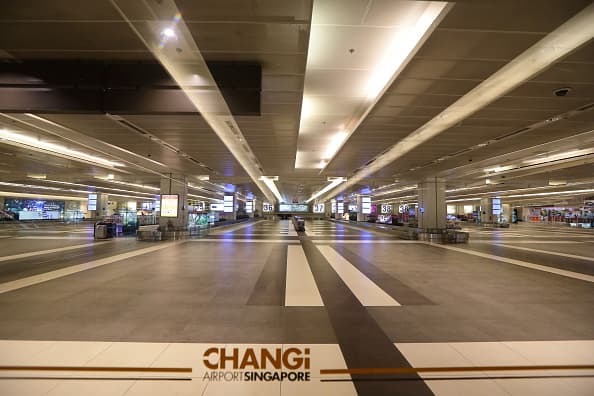SINGAPORE — Singapore has no domestic air travel market and “can’t wait around for a vaccine” before allowing more visitors to enter through international flights, the country’s transport minister said on Monday.
The coronavirus pandemic has hit the global aviation industry hard, as many countries shut their borders and restricted travel to slow the virus spread. Singapore has not been spared either, and is pulling out all the stops to revive its crucial airline industry.
For a small country like Singapore, the aviation sector needs “all these connections in order to be economically viable,” Ong Ye Kung, the transport minister, told CNBC’s “Squawk Box Asia.”
“We can’t wait around for a vaccine, we got to start doing something, active steps,” he added.
The tiny Southeast Asian nation has set up bilateral arrangements with several countries to allow business travel, including China, South Korea and Malaysia.
While those “reciprocal green lane” arrangements for corporate travelers keep “essential business dealings going,” they’re still “quite restrictive” and may not help to revive Singapore’s aviation sector, Ong said.
An empty baggage collection area at the arrival terminal at Changi Airport on March 24, 2020 in Singapore.
Suhaimi Abdullah | Getty Images News | Getty Images
Instead, general travel must resume, said the minister. He added that Singapore is working to establish so-called “travel bubbles” with countries that have kept their Covid-19 outbreak under control.
“We can open up safely because there are countries, regions that’ve kept the epidemic under control … and testings are no longer a constraint,” he said.
How travel bubbles work
The minister declined to reveal the countries that Singapore is in talks with to set up these travel bubbles. But he said China, Vietnam and Brunei are among those that have similar or better risk profiles compared to Singapore.
Such countries accounted for around 42% of Singapore’s air passenger volume before the pandemic, said Ong. Currently, Singapore’s Changi Airport — among the world’s busiest before the coronavirus outbreak — is serving just 1.5% of its usual passenger volume, he added.
He explained that countries considered “safe” can be treated as “one single quarantine area” with Singapore. That means that people from those countries may not have to apply for permission to travel within the bubble, but may be tested upon arrival as a precaution, he said.
Singapore should also “actively explore” lifting border restrictions for travelers from countries of higher risks of transmission, said Ong. But for such countries, quarantine requirements will likely deter travel even if borders are open, he added.
The minister named three measures that, collectively, could replace a quarantine upon arrival:
- A protocol of repeated testing. That means testing travelers before their departure, upon arrival, and on specific days during their travel;
- Control the venues that such travelers can go to;
- Robust contact tracing to quickly identify people who may be infected.
The measures could allow travelers to “come in, get business done or visit a loved one — or for whatever compassionate reasons you need to come in,” said Ong.
“I think we should also actively explore that so that we keep the channels and links open so that when epidemic control is more successful, we can reopen and elevate that into a bubble.”
